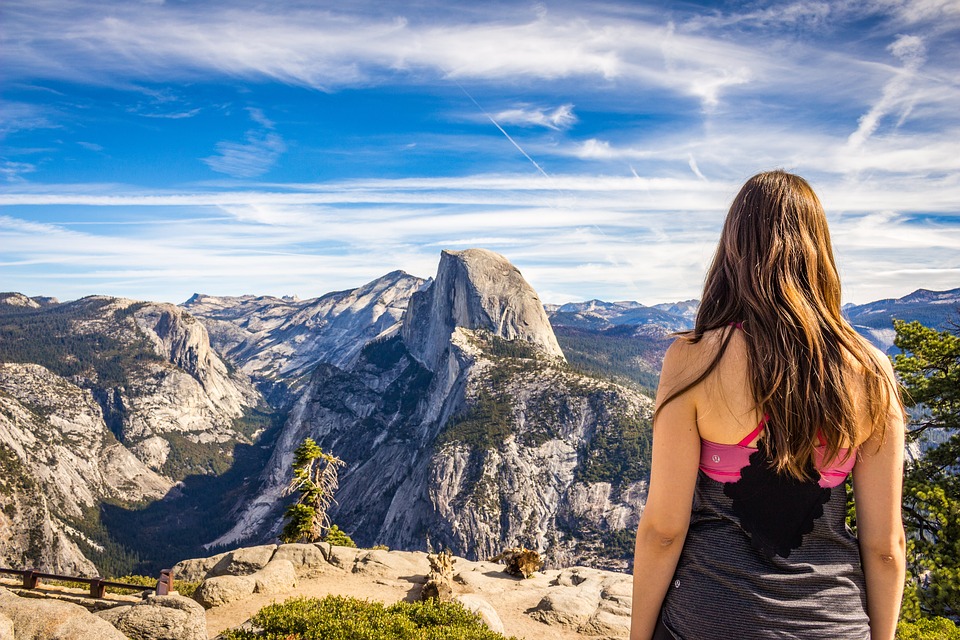Mountains or Ocean? It Says a Lot
Knowing yourself is the beginning of all wisdom. — Aristotle
I have a simple question for you:
In general, which do you like better, the ocean or the mountains?
Although this may seem like a meaningless question, research shows that if you prefer the ocean, you tend to be more extroverted, whereas if you chose the mountains, you tend to be more introverted.

Looking at a US sample of over 600,000 people, the researchers also found that people living in more mountains areas (e.g., Alaska, Oregon) tend to be more introverted than people living in flatter areas (e.g., Iowa, Ohio). And when researchers brought extroverts and introverts to a wooded area, the introverts were happier than the extroverts!
But wait…why?
To answer this, let’s look to one of my favorite studies, where researchers brought participants into the lab and attached electrodes to their hand (to measure sweating) and a plethysmograph (I don’t know how to pronounce that either) to measure blood pressure. Then, participants put in headphones and personally adjusted the volume till the intensity was “just right.”
Now, right off the bat there was a fascinating finding:
Introverts set their “just right” volume to 37 (out of a 100), while extroverts set theirs to 54.
Already, this demonstrates that introverts prefer lower levels of stimulation (e.g., the quiet mountains) compared to extroverts who prefer higher levels of stimulation (e.g., the active ocean).

That is, even though extroverts were listening to noises much louder than the introverts, both groups had almost identical increases in arousal. So, for example, when an extrovert is at a party with a full room of people, s/he is just as stimulated as an introvert in a room with only a handful of people.
But the researchers went even further and showed that if introverts listened to noises at a volume similar to extroverts’ preferred volume, the introverts performed significantly worse on a learning task.
Thus, if you’re an extrovert, imagine going to a party where the speakers are blasting right in your ears and the lights are flaring in your eyes. You wouldn’t want to be at that party, would you? For an introvert, though, this is what a normal party can feel like.
Unlike extroverts, introverts are more reactive to stimuli—no matter what those stimuli are. For example, introverts (compared to extroverts) tend to prefer less spicy food, colder showers, and silence while they study. For extroverts, though, they want greater stimulation, making them more comfortable approaching people, engaging in novel situations, and even watching TV while they study.

So, if we return to the mountains and oceans debate, extroverts prefer the ocean because they believe there will be more stimulation and excitement. For them, the mountains simply aren’t “engaging” enough, leaving them bored. For introverts, though, those tranquil mountains are the perfect amount of activity.
Ambivertly,
jdt
Everyday Psychology: Reflect on your own preferences for a moment. What kind of activities do you prefer? High-octane, high stimulus environments? Or slower and quieter activities and places? Rather than feeling guilty if you prefer “chiller” environments, try to adjust your surroundings to your preference. Your biology and upbringing has shaped your reaction to stimuli, and there’s no reason to feel guilty about that.
Brebner, J., & Flavel, R. (1978). The effect of catch‐trials on speed and accuracy among introverts and extraverts in a simple RT task. British Journal of Psychology, 69(1), 9-15.
Geen, R. G. (1984). Preferred stimulation levels in introverts and extroverts: Effects on arousal and performance. Journal of Personality and Social Psychology, 46(6), 1303.
Holmes, D. S. (1971). Visual aftermovement effects, pupillary constriction and personality differences. Journal of personality, 39(4), 473-480.
Oishi, S., Talhelm, T., & Lee, M. (2015). Personality and geography: Introverts prefer mountains. Journal of Research in Personality, 58, 55-68.








I’m always glad when you enjoy the post, and thank you for the web development compliments! You’ve been there since the beginning and seen it through all the changes–so don’t think you won’t be getting an acknowledgement somewhere one day! 😉
And I know exactly what you mean about the perfect living space–that’s my ideal, too. Although I enjoy the bustle of a crowd, I only like it for a few hours before I can retreat to my fortress of solitude.
But most importantly–congratulations, my man!!! That’s so cool you’re nearly finished with the book! Bringing in outside help is definitely a plus and something I myself should do to help with my projects. We should chat on the phone soon! I’d love to hear more about how the session with her goes and how life in general is going for you 🙂